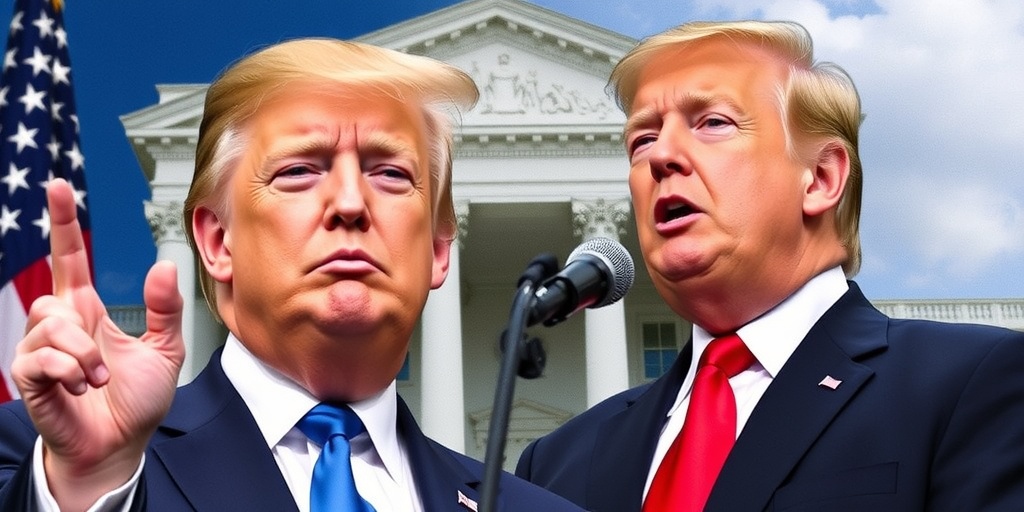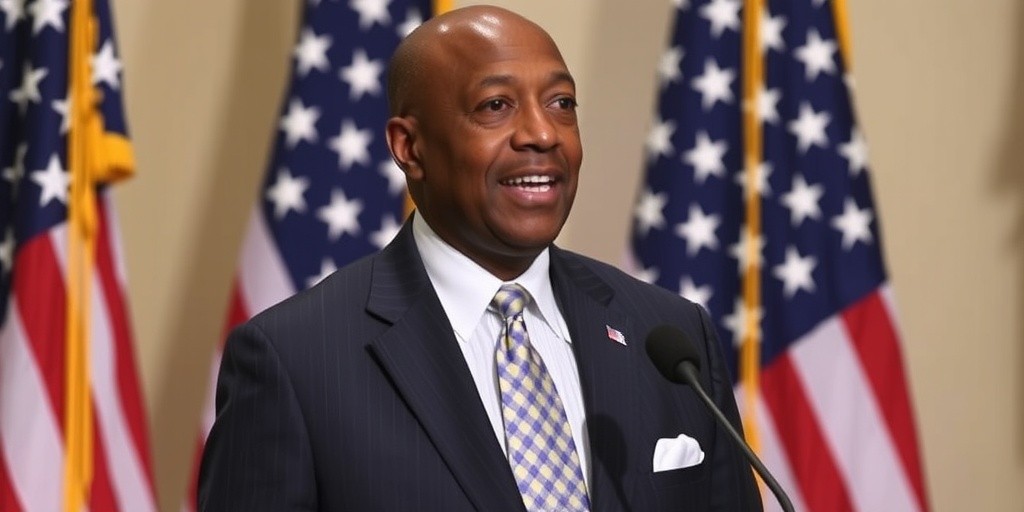Now Reading: Former Defense Secretaries Label Trump’s Military Leadership Changes as ‘Reckless’
-
01
Former Defense Secretaries Label Trump’s Military Leadership Changes as ‘Reckless’
Former Defense Secretaries Label Trump’s Military Leadership Changes as ‘Reckless’

Title: Five Former Defense Secretaries Urge Congressional Action Following Trump’s Military Leadership Firings
In an unprecedented move, five former defense secretaries have publicly condemned President Donald Trump’s recent decision to dismiss senior military leaders, labeling the action as "reckless." In a letter addressed to members of Congress, they called for immediate hearings to evaluate the potential national security repercussions stemming from these firings. The letter was made available to the public on Thursday and emphasizes the importance of maintaining the integrity and independence of military leadership in the face of political pressures.
The former defense secretaries who signed the letter are a bipartisan group that includes William J. Perry, who served under President Bill Clinton, Leon Panetta, also a Clinton appointee, Chuck Hagel, who served under President Barack Obama, Lloyd J. Austin III, and Jim Mattis, Trump’s first secretary of defense. Their collective experience spans decades and multiple administrations, making their concerns particularly weighty in the current political climate.
Last Friday, President Trump executed a significant shake-up within military leadership, dismissing several high-ranking officials, including General Charles Q. Brown Jr., who is notable for being only the second African American to lead the Joint Chiefs of Staff. Brown, a respected four-star fighter pilot, was replaced by Dan Caine, a relatively unknown retired three-star Air Force general. Alongside Brown, other key figures were also removed, including Admiral Lisa Franchetti, the chief of Naval Operations, and General James Slife, the vice chief of the Air Force. These changes have raised alarms regarding the implications for military governance and national security.
In their letter, the former defense secretaries highlighted the potential risks involved with politicizing military command, stating that such actions could deter talented individuals from pursuing careers in the armed forces. “Mr. Trump’s dismissals raise troubling questions about the administration’s desire to politicize the military and to remove legal constraints on the president’s power,” the letter asserts. This concern reflects a growing anxieties about the military’s role in American democracy and its independence from political influence.
The five former defense secretaries stressed the need for Congress to hold the President accountable for what they termed “reckless actions” and to exercise its constitutional oversight responsibilities effectively. They urged both the House and Senate to conduct thorough hearings to analyze the motivations behind the dismissals and their potential impact on national security protocols.
In response to the firings, Defense Secretary Pete Hegseth defended President Trump’s right to appoint and dismiss military leaders as he sees fit, arguing that it is within the President’s prerogative to choose individuals aligned with his vision and policy priorities. However, Hegseth’s defense does little to assuage the fears expressed by former leaders who served in both Democratic and Republican administrations. They warn that undermining the military command structure for political ends could lead to long-lasting repercussions for the armed forces and their reputation within American society.
The letter’s authors are particularly concerned about the implications of the firings on the morale and recruitment within the military. They suggest that prospective service members may reconsider their commitment to a military career if they believe that promotions and job security are contingent upon political loyalty rather than merit and capability. The independence of the military is a cornerstone of American democracy, and the potential erosion of that independence presents a challenge that the nation must address.
As the political landscape continues to evolve, the call for Congress to take swift action resonates with those who believe that military leadership should not be subject to the unpredictable whims of political appointees. Whether Congress will heed the call remains to be seen, but the issue raises broader questions about the balance of power, the role of the military in a democracy, and the importance of upholding the integrity of various institutions in the face of political maneuvering.
In conclusion, as the five former defense secretaries advocate for immediate congressional hearings and oversight, the fallout from Trump’s recent firings emphasizes the nuanced relationship between political leadership and military command. The historical precedence of civilian control over the military is challenged, and the outcome of this political standoff may shape the future dynamics of American governance and military integrity. Congress’s response to these unprecedented actions will not only affect military policy but may also set the tone for the governance practices that define the upcoming era in American politics.
Stay Informed With the Latest & Most Important News
Previous Post
Next Post
-
 01New technology breakthrough has everyone talking right now
01New technology breakthrough has everyone talking right now -
 02Unbelievable life hack everyone needs to try today
02Unbelievable life hack everyone needs to try today -
 03Fascinating discovery found buried deep beneath the ocean
03Fascinating discovery found buried deep beneath the ocean -
 04Man invents genius device that solves everyday problems
04Man invents genius device that solves everyday problems -
 05Shocking discovery that changes what we know forever
05Shocking discovery that changes what we know forever -
 06Internet goes wild over celebrity’s unexpected fashion choice
06Internet goes wild over celebrity’s unexpected fashion choice -
 07Rare animal sighting stuns scientists and wildlife lovers
07Rare animal sighting stuns scientists and wildlife lovers





















